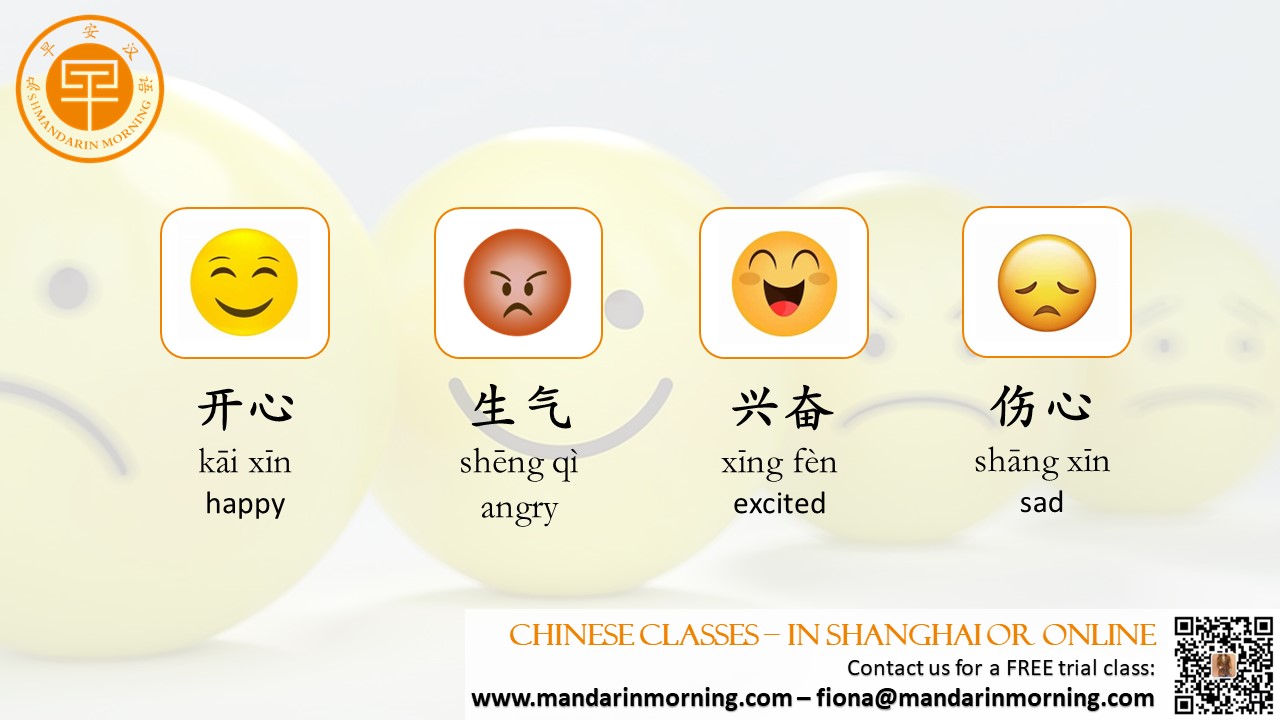If you are learning Mandarin Chinese, then you will eventually need to learn how to express your emotions in this beautiful language. Read on to find out how you can do this like a native speaker. Basic Chinese Vocabulary For Expressing Emotions When you are learning a language, you need to first build a good foundation before you move on to more advanced aspects of the language. That’s why you need to start from basic vocabulary before you can learn complicated words. Hence, here are some common words and phrases you can use to express basic emotions and feelings in Mandarin Chinese: happy 开心 (kāi xīn) excited 兴奋 (xīng fèn) sad 伤心 (shāng xīn) angry 生气 (shēng qì) hungry 饿 (è) thirsty 渴 (kě) hot 热 (rè) cold 冷 (lěng) bored 无聊 (wú liáo) tired 累 (lèi) sleepy 困 (kùn) furious 气愤 (qì fèn) worried 忧虑 (yōu lǜ) jealous 嫉妒 (jí dù) nervous 紧张 (jǐn zhāng) looking forward to 期待 (qí dài) embarrassed 尴尬 (gān gà) disappointed 失望 (shī wàng) confused 困惑 (kùn huò) surprised 惊讶(jīng yà) depressed 郁闷 (yù mèn) afraid 害怕 (hài pà) busy 忙 (máng) comfortable 舒服 (shū fú) sick/ill 生病 (shēng bìng) Chinese Phrases To Help You Express Emotions Now that you know some basic words, you can use them in simple sentences to express your feelings or emotions. There are three most common ways to express your emotions: “I’m a little…,” “I’m…,” and “I’m too/so…” All three are useful and can be used in different situations. Here’s what they sound like (use the word for the feeling or emotion you want to express in the place of “…”): I’m a little… – 我有一点… (wǒ yǒu yī diǎn…) I’m … – 我很… (wǒ hěn…) I’m too/so… – 我太 … 了 (wǒ tài … le) Examples: I’m a little tired – 我有一点累 (wǒ yǒu yī diǎn lèi) I’m happy – 我很高兴 (wǒ hěn gāo xìng) I’m too/so bored – 我太无聊了 (wǒ tài wú liáo le) |